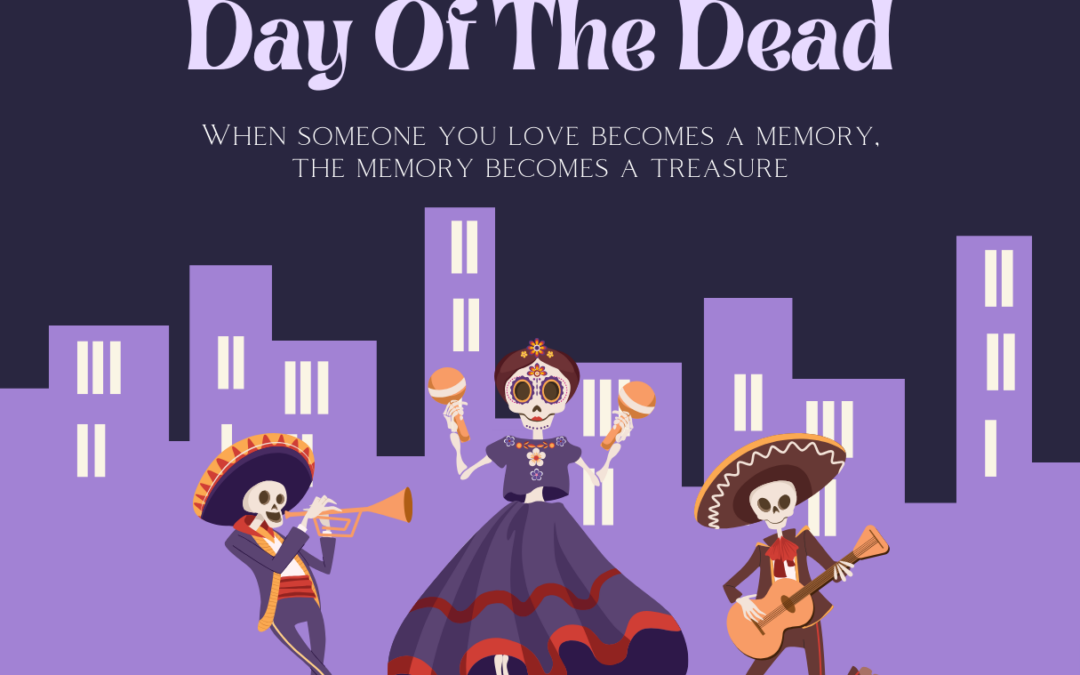Wishing Everyone A Happy Day of the Dead: A Celebration of Life and Memory MABA MassachusettsRealEstate FirstTimeHomeBuyers MaBuyerAgent
The Day of the Dead (or Día de los Muertos) is a Mexican holiday celebrated annually on November 1st and 2nd, coinciding with the Catholic holidays of All Saints’ Day and All Souls’ Day. Unlike many other traditions surrounding death, this holiday is a joyful celebration of life, honoring loved ones who have passed away. Rooted in ancient Aztec and Mesoamerican beliefs, Día de los Muertos views death as a natural part of life’s cycle. It is believed that on these days, the spirits of the deceased return to the world of the living to reunite with their families and enjoy offerings in their memory.
Altars and Offerings: The Heart of the Celebration
Central to the Day of the Dead is the creation of altars or ofrendas in homes, cemeteries, and public spaces. These altars are adorned with marigolds (known as cempasúchil), candles, incense, and photographs of the deceased. Personal items, favorite foods, and beverages of the departed are also placed on the altar, welcoming the spirits back to the realm of the living. Pan de muerto, a special sweet bread baked during this time, and sugar skulls (calaveras) are common offerings. The ofrenda serves as both a tribute and an invitation, helping the spirits find their way back to enjoy the celebration with their families.
Symbolism and Traditions
Day of the Dead is filled with colorful and symbolic customs. Skeletons (calacas), often depicted dancing or dressed in lively clothing, are a central figure in the festivities, representing the blending of life and death. Another iconic figure is La Catrina, a skeleton dressed as an elegant woman, symbolizing the idea that death comes for all, regardless of social standing. Families often visit cemeteries to clean and decorate the graves of their loved ones, spending the night there to connect with the spirits. Music, dance, and storytelling are also integral to the celebration, with many communities hosting parades and public events to mark the occasion.
Cultural Significance and Global Influence
While the Day of the Dead is deeply rooted in Mexican culture, it has grown in recognition and influence worldwide. It represents the idea that death should not be feared but rather embraced as part of the human experience. The holiday has been declared an Intangible Cultural Heritage by UNESCO, highlighting its importance to Mexican identity and the broader understanding of death in a cultural context. The vibrant imagery and joyous spirit of Día de los Muertos have also been embraced in various artistic expressions, from films like Coco to public festivals, making it an enduring and celebrated holiday across the globe.

FIRST TIME HOMEBUYERS
HOMEBUYERS BEWARE! Book Review
This book is an excellent first step in a complicated process.

BEWARE the cards are stacked against you! Get Tom Wemett's book, learn why are different from other
Buying a home is like buying a car, on steroids. It’s the biggest investment you are likely to make so the stakes are incredibly high. I knew that having an agent represent me was a good idea.
What I hadn’t grasped was how important it is to find one who is not connected with the selling side in any way—through an agency that also represents sellers, as most do, at least in Mass. In researching buyer agents, I found Tom through the Mass. Assoc. of Buyer Agents (MABA).
Get Started with MABA
For no extra cost, let a MABA buyer agent protect your interests



